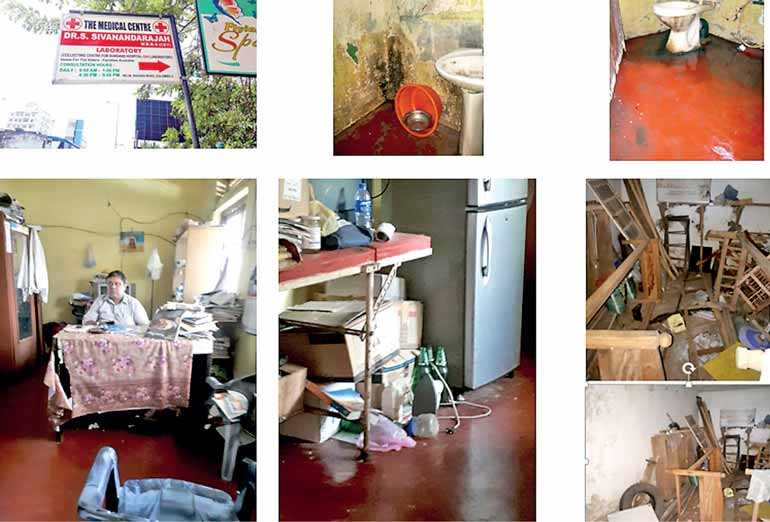Monday Feb 16, 2026
Monday Feb 16, 2026
Wednesday, 18 September 2019 00:00 - - {{hitsCtrl.values.hits}}

Framing the debate
For those of us who can afford them, the question is often raised whether we should go to the neighbourhood private hospital or State hospital when sick. The purpose of this article is to share my experience over my lifetime in always choosing State hospitals.
The advantages of private hospitals are manifold – relaxed visiting hours, private rooms, the ability to have a sit-in friend for the night in the room, clean toilets, no-queuing at the dispensary for medicines, etc. Yet my vote is for State hospitals, although for routine practices, like child delivery, a private hospital may be convenient but perhaps disastrous if there are unforeseen complications.
I think the strongest reasons for choosing a State hospital are the vast array of doctors of every conceivable specialty available on call and the reliable availability of an assortment of medical equipment. Some may argue that this is not true of rural hospitals. While that might be true, we must compare apples with apples, not with oranges.
Are the rural private hospitals better staffed and better equipped than the rural State hospitals? In fact, if things go wrong at a rural hospital, it is likely that the hospital will transfer the patient by ambulance to a national hospital that can deal with the problem. Let me shift from my personal opinions to concrete examples.
Private Hospital Examples
A friend’s child in Colombo had fever for a day. My friend panicked. Dengue, she said, like a good mother looking out for her child. The father said it is good to wait for a day or to. However, with her concern for her child’s safety, the mother wanted to take the safer route and get checked. ‘Which is more important, money or our child?’ she demanded. That settled the argument.
Off they went to a Wellawatte private hospital. There was no doctor so the child was kept on aspirin till the doctor turned up in the morning. By then the fever had abated. It took till evening and the payment of hefty bills for the child to go home to her regular, peaceful home environment.
It is usually the argument of not caring enough to spend money on a family member that wins the day. It is the argument by which a private hospital is chosen, ignoring rational considerations – avoidance of the social pressure that come when it is claimed that the parents do not want to spend on their child. The family is watching. Friends are watching. The parents-in-law are watching, and perhaps even commenting. The family is being blackmailed into spending to prove care for a family member.
“Not taking a risk” is often advanced by private practitioners in their self-interest to urge well-facilitated private care. Those watching, take the expensive option being advanced for granted as the wiser option. In one instance a child started crying that the father does not care in not taking her to hospital over a stomach ache – in the end it was constipation, gas, and big bills for the scans to diagnose the cause of the stomach ache.
In one of two horrific examples, a rural patient was referred by State ambulance to Colombo for clots in the head. Friends in Colombo who received him diverted him to a private hospital where heart bypass surgery was done, and despite the patient continuing to exhibit alarming symptoms and surgical complications, the doctors discharged the patient home to die. The family had a death certificate and Rs. 7 lakhs in bills.
An in-law who had a burst appendix and severe abdominal pain went to the same hospital. She was misdiagnosed and put through hip-replacement surgery, and the family pestered through daily phone calls to settle each day’s bill for the stay in intensive care. It was painful to see her being forced into physiotherapy and be scolded by uncompassionate hospital personnel for being fussy as she winced in pain from the neglected appendix. The infection from the burst appendix got worse, she was readmitted and died.
State hospital examples
State hospitals present a happier picture. A friend of mine had prolonged fever and was being treated first for malaria and then for typhoid in private clinics, first in Jaffna and then in Colombo. As she declined she went to Emergency at Jaffna Hospital.
Among the many doctors in training in the admissions area, one had experience with the actual ailment. She asked my friend to look sideways and upwards. Based on something she saw, she asserted Pannai Kaychal – Lyme Disease, something picked up from tick-bites. The top-doctor looked and agreed. She was admitted to Dr. Peranandarajah’s ward where in 24 hours the right medicines saw the improvements that had evaded her for long, and all internal organs slowly returned to their normal size.
An uncle with cancer spent days and tons of money at a private hospital, paying for that scan and this scan with no firm diagnosis. The last straw was when his doctor messed up an expensive test because he was in a rush to head out on vacation, then demanded the family pay to redo the test. The experience forced my uncle to go to Kalubowila. Dr. Kailanathan took charge. All necessary scans were done, the necessary biopsies taken and surgery successfully done without charge.
There is a similar experience from Lady Ridgeway Children’s Hospital. Two sisters aged around 11 had gone on a school picnic and showed symptoms of meningitis. They were readied for a lumbar puncture, a painful and risky procedure at any age involving a large needle in the spinal cord, to drain certain fluids. Then, a young doctor of the many who had seen the girls told those in charge this: “Meningitis is not infectious. How did the two sisters get it at the same time?” Surgery was cancelled and more tests done. It was rat fever from the rivers in which they had played on their picnic.
The message is clear. Medical diagnosis is a tough art. The teams of many minds available at State hospitals make the treatment there far superior.
Exceptions
There are many exceptions of course. What I say applies to Sri Lankan hospitals. Unlike State hospitals, private clinics and hospitals are there to make money. To make more money, costs need to be cut. So dirty private clinics are not unusual as seen in the photo-collage from a doctor’s clinic that is the blood collection centre for one of Colombo’s most highly-thought-of hospitals that is involved in some of the disgraceful scandals mentioned here. It cuts their costs to use this clinic for collecting blood. On the other hand, most private hospitals are cleaner.
State hospitals have improved vastly in the last 10 years. Dirty toilets at Jaffna Hospital are vastly improved and far cleaner than the doctor’s clinic pictured here. This is not to say that State hospitals and care are without their flaws, especially as regards nurses’ bedside manners. However, in terms of medical care my observations have led me to choose State hospitals over private.
Proof of the pudding
The proof of the pudding is in the eating they say. Recently I had dengue and then a broken shoulder requiring a CT scan under Dr. Umapathy at Kalubowila. Both times I went to State hospitals and am very happy with the experience. My wife had her only Sri Lankan delivery at Sri Jayawardenepura in 1997 and will not go elsewhere. My mother had all her deliveries in State hospitals. Most recently, my friend Carlo Fonseka had to make numerous visits to hospital and all were to State hospitals, whereas his countless medical students would have given him exceptional care in their private hospitals.
Thank God for the State hospitals provided free to us.